View main workshop page (June 2021)

2021 Workshop: Featured Speakers
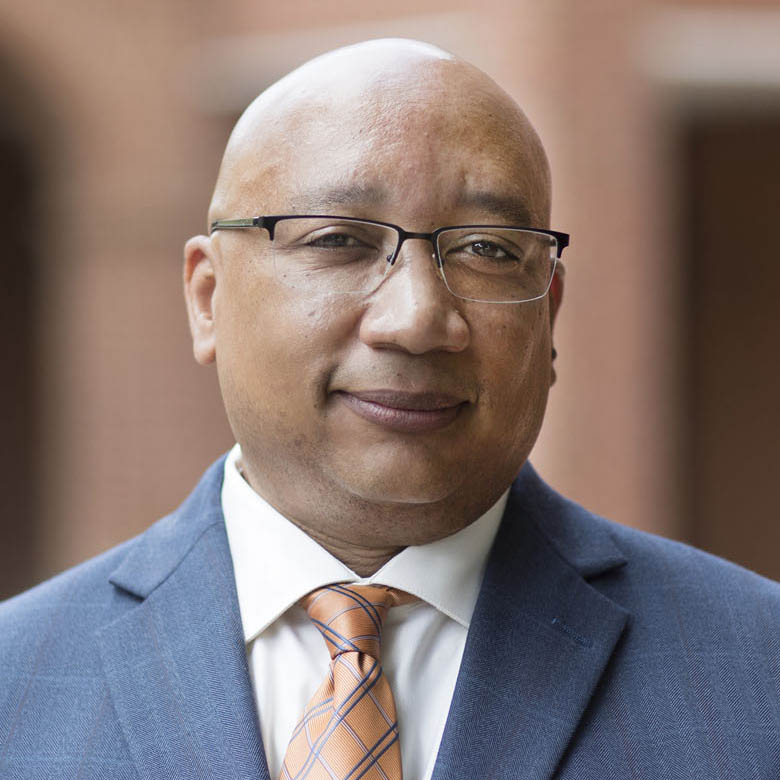 Dr. Robert Q. Berry III is the Samuel Braley Gray Professor of Mathematics Education and the Associate Dean of Diversity, Equity, and Inclusion in the School of Education and Human Development at the University of Virginia and the immediate Past President of the National Council of Teachers of Mathematics (NCTM). Berry co-edited the 2020 book High School Mathematics Lessons to Explore, Understand, and Respond to Social Injustice which focuses on teaching mathematics for social justice. His articles have appeared in the Journal for Research in Mathematics Education, Journal of Teacher Education, Educational Studies in Mathematics, and the American Educational Research Journal. Berry is a two-time recipient of NCTM's Linking Research and Practice Publication Award and received the University of Virginia's All-University Teaching Award in 2011.Robert Berry received his Bachelor of Science degree from Old Dominion University, his master's degree from Christopher Newport University, and holds a Ph.D. from the University of North Carolina at Chapel Hill.
Dr. Robert Q. Berry III is the Samuel Braley Gray Professor of Mathematics Education and the Associate Dean of Diversity, Equity, and Inclusion in the School of Education and Human Development at the University of Virginia and the immediate Past President of the National Council of Teachers of Mathematics (NCTM). Berry co-edited the 2020 book High School Mathematics Lessons to Explore, Understand, and Respond to Social Injustice which focuses on teaching mathematics for social justice. His articles have appeared in the Journal for Research in Mathematics Education, Journal of Teacher Education, Educational Studies in Mathematics, and the American Educational Research Journal. Berry is a two-time recipient of NCTM's Linking Research and Practice Publication Award and received the University of Virginia's All-University Teaching Award in 2011.Robert Berry received his Bachelor of Science degree from Old Dominion University, his master's degree from Christopher Newport University, and holds a Ph.D. from the University of North Carolina at Chapel Hill.
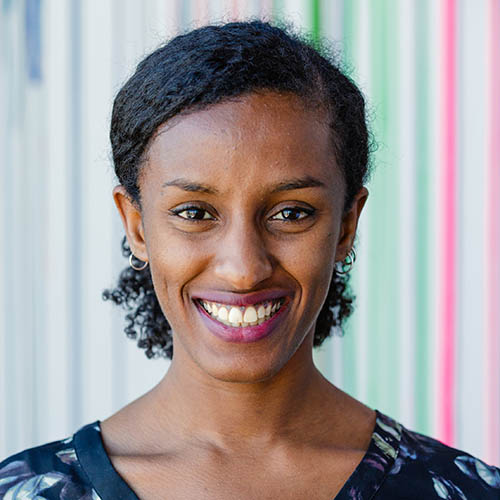 Dr. Rediet Abebe is an Assistant Professor of Computer Science at the University of California, Berkeley and a Junior Fellow at the Harvard Society of Fellows. Abebe holds a Ph.D. in computer science from Cornell University and graduate degrees in mathematics from Harvard University and the University of Cambridge. Her research is in artificial intelligence and algorithms, with a focus on equity and distributive justice concerns. Abebe co-founded and co-organizes Mechanism Design for Social Good (MD4SG) and is serving as Program Co-chair for the inaugural ACM Conference on Equity and Access in Algorithms, Mechanisms, and Optimization (EAAMO '21). Her dissertation received the 2020 ACM SIGKDD Dissertation Award and an honorable mention for the ACM SIGEcom Dissertation Award for offering the foundations of this emerging research area. Abebe's work has informed policy and practice at the National Institute of Health (NIH), the Ethiopian Ministry of Education, and the United Nations Food Systems Summit. Abebe also co-founded Black in AI, a non-profit organization tackling equity issues in AI. Her work is influenced by her upbringing in her hometown of Addis Ababa, Ethiopia.
Dr. Rediet Abebe is an Assistant Professor of Computer Science at the University of California, Berkeley and a Junior Fellow at the Harvard Society of Fellows. Abebe holds a Ph.D. in computer science from Cornell University and graduate degrees in mathematics from Harvard University and the University of Cambridge. Her research is in artificial intelligence and algorithms, with a focus on equity and distributive justice concerns. Abebe co-founded and co-organizes Mechanism Design for Social Good (MD4SG) and is serving as Program Co-chair for the inaugural ACM Conference on Equity and Access in Algorithms, Mechanisms, and Optimization (EAAMO '21). Her dissertation received the 2020 ACM SIGKDD Dissertation Award and an honorable mention for the ACM SIGEcom Dissertation Award for offering the foundations of this emerging research area. Abebe's work has informed policy and practice at the National Institute of Health (NIH), the Ethiopian Ministry of Education, and the United Nations Food Systems Summit. Abebe also co-founded Black in AI, a non-profit organization tackling equity issues in AI. Her work is influenced by her upbringing in her hometown of Addis Ababa, Ethiopia.
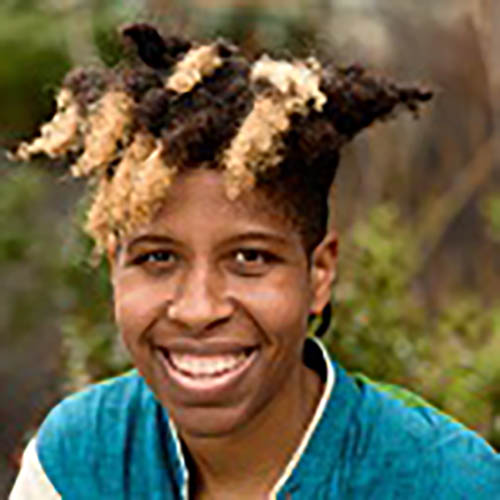 Dr. Emma Benn is an Associate Professor in the Center for Biostatistics and Department of Population Health Science and Policy at the Icahn School of Medicine at Mount Sinai (ISMMS). She is also the Founding Director of the Center for Scientific Diversity and Associate Dean of Faculty Well-being and Development at ISMMS. She serves on the Faculty Diversity Council, Quality Leadership Council, HBCU Working Group, and Anti-racism Task Force at ISMMS.
Dr. Emma Benn is an Associate Professor in the Center for Biostatistics and Department of Population Health Science and Policy at the Icahn School of Medicine at Mount Sinai (ISMMS). She is also the Founding Director of the Center for Scientific Diversity and Associate Dean of Faculty Well-being and Development at ISMMS. She serves on the Faculty Diversity Council, Quality Leadership Council, HBCU Working Group, and Anti-racism Task Force at ISMMS.
Dr. Benn has collaborated on a variety of interdisciplinary research projects over the course of her career and is particularly interested in health disparities research. She developed a graduate-level course at ISMMS, Race and Causal Inference, designed to increase the methodologic rigor by which students and trainees investigate health disparities with a goal of finding effective causal targets for intervention. Dr. Benn, through her leadership of the Center for Scientific Diversity, is committed to increasing diversity, inclusion, and equitable advancement in (bio)statistics and the biomedical research workforce, more broadly, as well as reducing racial/ethnic disparities in faculty promotion in academic medicine. Dr. Benn is the co-founder of the NHLBI-funded Biostatistics Epidemiology Summer Training (BEST) Diversity Program and a former co-Chair of the ENAR Fostering Diversity in Biostatistics Workshop. She currently serves on the American Statistical Association’s Task Force on Antiracism and LGBTQ Advocacy Committee. She also serves as a mentor for the JSM Diversity Workshop and Mentoring Program and the Math Alliance.
Dr. Benn was co-PI of the NIGMS-funded Applied Statistics in Biological Systems (ASIBS) Short Course aimed at increasing the statistical competency and research capacity of early-stage researchers nationwide. She currently is co-PI of the NHGRI-funded Clinical Research Education in Genome Science (CREiGS) Short Course aimed at exposing doctoral students, postdocs, and clinical and research faculty to computational tools in genome science in addition to effective strategies for engaging underserved communities in genomics research. Dr. Benn’s contributions to diversity and inclusion in statistics and STEM have been celebrated by various organizations including Mathematically Gifted and Black, Graduate Women in Science, and the American Statistical Association.
 Dr. Sharad Goel is an assistant professor at Stanford University in the Department of Management Science & Engineering, with courtesy appointments in Computer Science, Sociology, and the Law School. He's the founder and faculty director of the Stanford Computational Policy Lab, a group that develops technology to tackle pressing issues in criminal justice, education, voting rights, and beyond. In his research, Sharad looks at public policy through the lens of computer science, bringing a new, computational perspective to a diverse range of contemporary social issues, including policing practices, electoral integrity, online privacy, and media bias. Before joining the Stanford faculty, Sharad completed a Ph.D. in applied mathematics at Cornell University, and worked as a senior researcher at Microsoft.
Dr. Sharad Goel is an assistant professor at Stanford University in the Department of Management Science & Engineering, with courtesy appointments in Computer Science, Sociology, and the Law School. He's the founder and faculty director of the Stanford Computational Policy Lab, a group that develops technology to tackle pressing issues in criminal justice, education, voting rights, and beyond. In his research, Sharad looks at public policy through the lens of computer science, bringing a new, computational perspective to a diverse range of contemporary social issues, including policing practices, electoral integrity, online privacy, and media bias. Before joining the Stanford faculty, Sharad completed a Ph.D. in applied mathematics at Cornell University, and worked as a senior researcher at Microsoft.
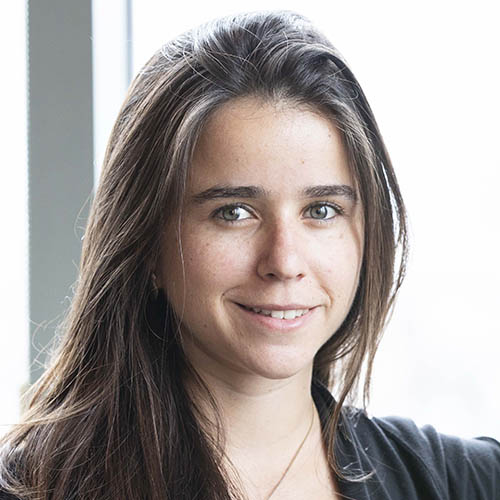 Dr. Maria De-Arteaga is an Assistant Professor at the Information, Risk and Operation Management (IROM) Department at the University of Texas at Austin, where she is also a core faculty member in the Machine Learning Laboratory. She received a joint PhD in Machine Learning and Public Policy from Carnegie Mellon University. Her research on algorithmic fairness and human-centered machine learning studies the risks and opportunities of using machine learning to support experts’ decisions in high-stakes settings. Her work has been awarded the Best Thematic Paper Award at NAACL’19, the Innovation Award on Data Science at Data for Policy’16, and has been featured by UN Women and Global Pulse in their report Gender Equality and Big Data: Making Gender Data Visible. She is a recipient of a 2020 Google Award for Inclusion Research, a 2018 Microsoft Research Dissertation Grant, and was named an EECS 2019 Rising Star.
Dr. Maria De-Arteaga is an Assistant Professor at the Information, Risk and Operation Management (IROM) Department at the University of Texas at Austin, where she is also a core faculty member in the Machine Learning Laboratory. She received a joint PhD in Machine Learning and Public Policy from Carnegie Mellon University. Her research on algorithmic fairness and human-centered machine learning studies the risks and opportunities of using machine learning to support experts’ decisions in high-stakes settings. Her work has been awarded the Best Thematic Paper Award at NAACL’19, the Innovation Award on Data Science at Data for Policy’16, and has been featured by UN Women and Global Pulse in their report Gender Equality and Big Data: Making Gender Data Visible. She is a recipient of a 2020 Google Award for Inclusion Research, a 2018 Microsoft Research Dissertation Grant, and was named an EECS 2019 Rising Star.
 Dr. Michael A. Jones is the Managing Editor and an Associate Editor at the American Mathematical Society’s Mathematical Reviews, where he has worked since 2008. Previously, he held faculty positions at Montclair State University (New Jersey), Loyola University Chicago, and the US Military Academy at West Point. He earned his PhD from the Department of Mathematics at Northwestern University in game theory under Donald Saari in 1994. His research interests are focused not only on theoretical aspects of game theory, social choice, and fair division, but the application of mathematics to the social sciences, including political science, economics, psychology, and law. Since 2009, he has taught a summer course for high school students (The Mathematics of Decisions, Elections and Games) as part of the Michigan Math and Science Scholars program at the University of Michigan.
Dr. Michael A. Jones is the Managing Editor and an Associate Editor at the American Mathematical Society’s Mathematical Reviews, where he has worked since 2008. Previously, he held faculty positions at Montclair State University (New Jersey), Loyola University Chicago, and the US Military Academy at West Point. He earned his PhD from the Department of Mathematics at Northwestern University in game theory under Donald Saari in 1994. His research interests are focused not only on theoretical aspects of game theory, social choice, and fair division, but the application of mathematics to the social sciences, including political science, economics, psychology, and law. Since 2009, he has taught a summer course for high school students (The Mathematics of Decisions, Elections and Games) as part of the Michigan Math and Science Scholars program at the University of Michigan.
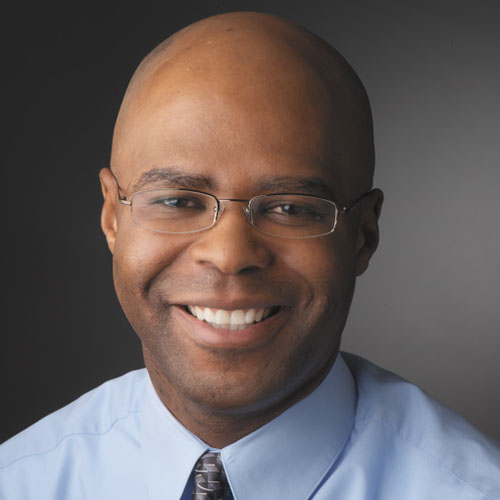 Dr. Danny Bernard Martin is Professor in the Department of Curriculum and Instruction and the Department of Mathematics, Statistics, and Computer Science at the University of Illinois at Chicago. Dr. Martin’s research has focused primarily on understanding the salience of race and identity in Black learners’ mathematical experiences. Prior to coming to UIC in 2004, Dr. Martin was a faculty member in mathematics for 14 years at a Bay Area community college.
Dr. Danny Bernard Martin is Professor in the Department of Curriculum and Instruction and the Department of Mathematics, Statistics, and Computer Science at the University of Illinois at Chicago. Dr. Martin’s research has focused primarily on understanding the salience of race and identity in Black learners’ mathematical experiences. Prior to coming to UIC in 2004, Dr. Martin was a faculty member in mathematics for 14 years at a Bay Area community college.
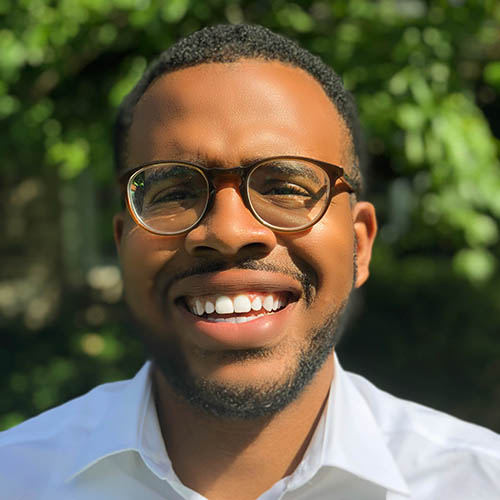
Darius McDaniel is a biostatistician who has worked in the research areas of neurology, cardiology and infectious diseases with focuses on Alzheimer's, Tuberculosis, HIV, RSV and now COVID-19. He currently serves as a Statistician and Epidemiologist with Leidos a part of the COVID-19 response in U.S. Dialysis Centers at the Center for Disease Control and Prevention. He has a broad background in mathematics, statistics and informatics, with specific training and proficiency in both biostatistics and informatics. He has held statistical research positions at Emory University's School of Medicine and School of Public Health, the Center for Disease Control and Prevention and the University of Pennsylvania School of Nursing. He also serves as a biostatistics/informatics instructor in the School of Public Health at Emory. He received his MSPH in Public Health Informatics from Emory and BS in Mathematics and Applied Statistics from Alabama A&M University. In Fall 2021, he will begin his PhD in Biostatistics at Drexel University's School of Public Health.
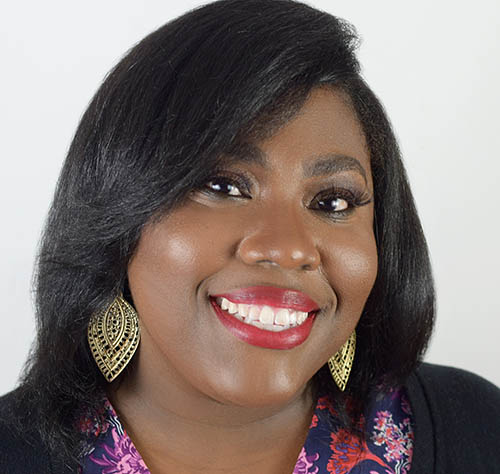 Dr. Brittany L. Mosby is the Director of Historically Black Colleges and Universities (HBCU) Success programs and initiatives at the Tennessee Higher Education Commission, the coordinating board for the state’s postsecondary education. As Director, Mosby develops policy, programming, and partnerships that foster student success, facilitate institutions’ ability to fulfill their missions, and further the state’s higher education attainment goals.
Dr. Brittany L. Mosby is the Director of Historically Black Colleges and Universities (HBCU) Success programs and initiatives at the Tennessee Higher Education Commission, the coordinating board for the state’s postsecondary education. As Director, Mosby develops policy, programming, and partnerships that foster student success, facilitate institutions’ ability to fulfill their missions, and further the state’s higher education attainment goals.
Prior to joining the Tennessee Higher Education Commission, Dr. Mosby was a tenured associate professor of mathematics at Pellissippi State Community College.
A third-generation Spelman College graduate, Dr. Mosby is a direct beneficiary of the intergenerational social mobility made possible by HBCUs and is passionate about preserving the legacy and promoting the enduring sustainability of the unparalleled HBCU experience. Mosby also received a Master of Science in mathematics from Carnegie Mellon University, and a Doctor of Education in higher education policy and leadership as a Peabody Honors Scholar at Vanderbilt University.
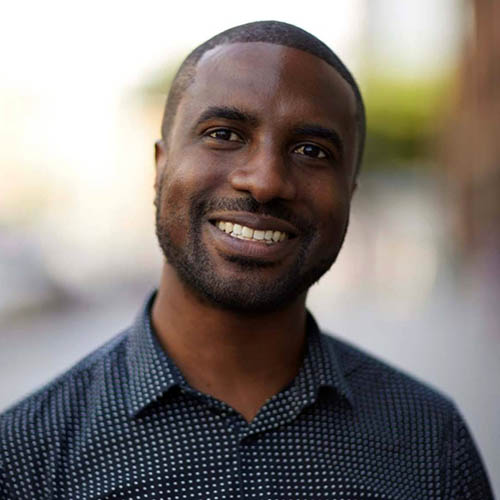 Dr. Michael Ralph teaches in the School of Medicine at New York University. He holds a doctorate in Anthropology from the University of Chicago, where he also studied economics and history. His research involves the intersection of medical anthropology, politics, and finance through an explicit focus on actuarial science, forensics, debt, slavery, insurance and incarceration. Michael is the recipient of fellowships from the Andrew W. Mellon Foundation, Woodrow Wilson Foundation, Social Science Research Council, National Science Foundation, Institute for Advanced Study in Princeton, as well as Harvard University’s Charles Warren Center for Studies in US History and W.E.B. Dubois Fellowship.
Dr. Michael Ralph teaches in the School of Medicine at New York University. He holds a doctorate in Anthropology from the University of Chicago, where he also studied economics and history. His research involves the intersection of medical anthropology, politics, and finance through an explicit focus on actuarial science, forensics, debt, slavery, insurance and incarceration. Michael is the recipient of fellowships from the Andrew W. Mellon Foundation, Woodrow Wilson Foundation, Social Science Research Council, National Science Foundation, Institute for Advanced Study in Princeton, as well as Harvard University’s Charles Warren Center for Studies in US History and W.E.B. Dubois Fellowship.
Michael’s 2015 book Forensics of Capital demonstrates that the social profile of an individual or country is a credit profile as well as a forensic profile. Michael is now completing two additional books. Life explores the relationship between the history of actuarial science, slavery, life insurance, and other techniques for determining how much someone’s life is worth. Before 13th revises the scholarly consensus about private prison labor, or convict leasing, showing that it did not begin with the 13th amendment but several decades prior.
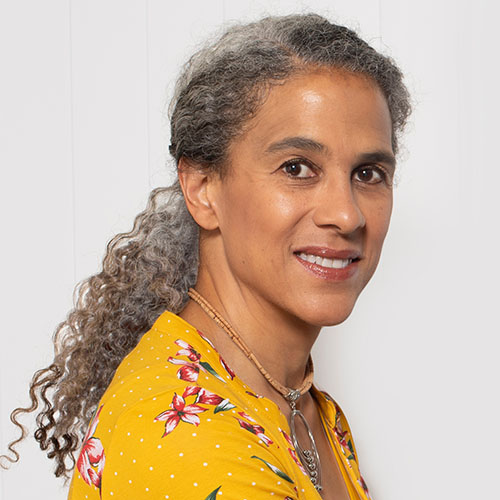 Dr. Stephanie Somersille is the founder of Somersille Math Education Services, a boutique math consulting firm that inspires and coaches students of all ages to achieve levels of expertise beyond their own expectations. Somersille helps students ready for more challenge as well as students who need support with math concepts and anxiety. She helps teachers better serve students with different levels of preparation and confront issues of racial and gender equity.
Dr. Stephanie Somersille is the founder of Somersille Math Education Services, a boutique math consulting firm that inspires and coaches students of all ages to achieve levels of expertise beyond their own expectations. Somersille helps students ready for more challenge as well as students who need support with math concepts and anxiety. She helps teachers better serve students with different levels of preparation and confront issues of racial and gender equity.
Somersille is passionate about applying mathematical analysis and algorithms to issues of social justice, fair representation and public policy. She is currently consulting on projects involving redistricting and preventing extreme partisan gerrymandering.
Somersille has held research/teaching positions at University of Texas, Austin; Instituto Superior Tecnico, Portugal; and Dartmouth University. Somersille holds a bachelor’s degree in economics from Yale University and a PhD in Mathematics from the University of California, Berkeley. Thesis topics: partial differential equations, probability and game theory. When she isn’t working she enjoys volunteering with Brown Girl Surf and The Marine Mammal Center, surfing, running, bike riding, ballet and the symphony.